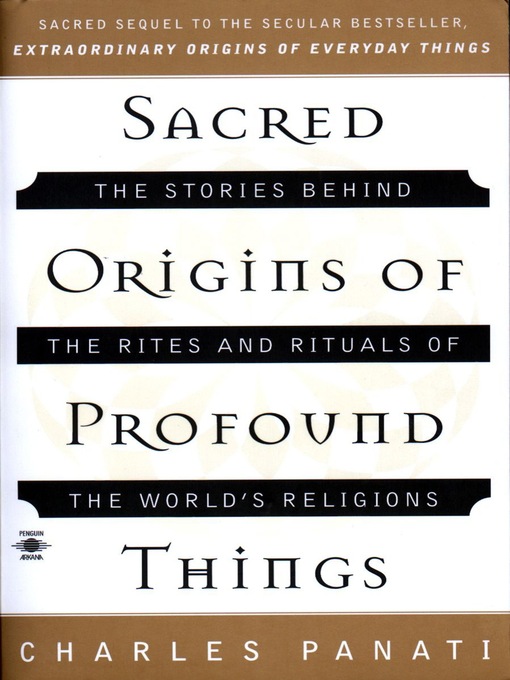* Why the Star of David became the Jewish counterpart of the Christian cross
* What mortal remains of the Buddha are venerated today
* How the diamond engagement ring became a standard
* That the first pope was a happily married man
* How Hindu thinkers arrived at their concept of reincarnation
* Why Jews don't eat pork, why some Muslims don't eat certain vegetables, and how some Christians came to observe meatless Fridays
Sacred Origins of Profound Things is an indispensable resource for all those interested in the history of religion and the history of ideas—and an inspiring guide to those seeking to understand their faith.

